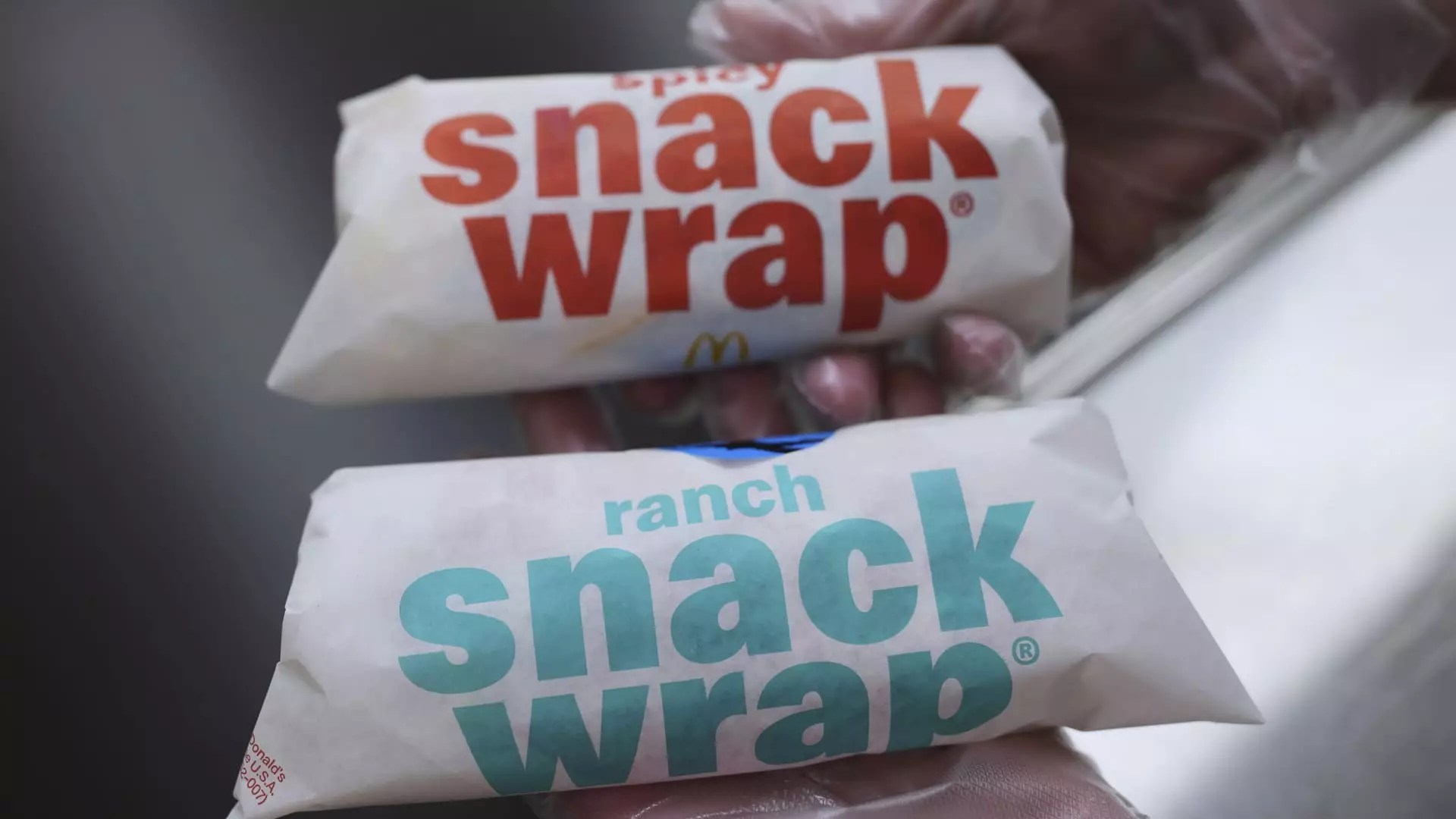In an industry plagued by shifting consumer preferences and fierce competition, McDonald’s has demonstrated an uncanny ability to leverage nostalgia and innovation simultaneously. The return of the Snack Wrap, after nearly a decade, isn’t just a nostalgic throwback—it exemplifies a strategic move to rekindle customer loyalty and adapt to modern tastes. The remarkable immediate response underscores a fundamental truth: fast-food giants must continuously evolve, yet honor their roots to sustain relevance. McDonald’s decision to bring back the Snack Wrap reveals a nuanced understanding of its core customer base—longtime fans who crave familiar favorites but also seek fresh, high-quality options. This balancing act is vital in today’s consumer landscape, where brand loyalty hinges on emotional connection and perceived authenticity.
Digital Buzz and Real-World Impact: The Power of Social Media in Food Revival
The social media frenzy that greeted the Snack Wraps’ return exemplifies the contemporary power of digital engagement in shaping consumer behavior. The surge in restaurant traffic—double-digit increases in the first days—illustrates how viral moments can propel a product beyond traditional marketing constraints. McDonald’s mastery in harnessing online enthusiasm amplifies its overall brand strength, but it also exposes a critical dependency: ephemeral social media hype might generate fleeting gains unless coupled with authentic product quality. Behind the scenes, mcDonald’s internal data shows that loyal customers, who visit the chain more frequently than ordinary patrons, are the primary drivers of this resurgence. Their loyalty not only amplifies the immediate sales spike but also hints at an underlying shift—a recognition that clever product experimentation with consistent quality is essential for long-term resilience.
Challenges and Limitations of Discount-Driven Strategies
While promotional hype and temporary discounts like meal deals and movie tie-ins serve as effective traffic boosters, they do not address core issues like sluggish sales or long-term consumer engagement. The temporary lettuce shortages and reliance on discounts underscore the chain’s vulnerability to operational hiccups and profit erosion. McDonald’s appears to be leveraging the Snack Wrap’s popularity more as a proof that its brand still resonates rather than a guaranteed revenue engine. The risk lies in fostering a perception that such items are solely promotional or novelty-driven; without a solid foundation of consistent quality, consumer interest can quickly wane once initial buzz subsides. This highlights the importance of strategic product development that emphasizes quality, adaptability, and genuine consumer appeal, rather than relying heavily on fleeting promotions.
Consumer Insights and the Future of Menu Innovation
The loyalty reflected in the Numerator survey reveals a core insight: consumers are craving not just convenience but authentic, satisfying options that honor their familiarity with the brand. The fact that 90% of respondents intend to repurchase the Snack Wrap signals a meaningful shift—one that newer, trend-focused competitors often struggle to replicate. McDonald’s ability to blend innovation like the McCrispy Strips with nostalgic staples positions it as a formidable leader in menu evolution. However, future success will depend not only on product innovation but also on how the chain balances operational efficiencies and customer satisfaction. This scenario offers a lesson: relevance in the fast-food industry isn’t solely about launching new products but about fostering genuine relationships through quality, consistency, and smart adaptation to market demands.
The Broader Context: Navigating Capitalism with Consumer-Centric Values
McDonald’s comeback with the Snack Wraps exemplifies how corporations can adapt without sacrificing core values of quality and consumer trust. In an era increasingly driven by social responsibility and ethical consumption, fast-food companies face mounting pressure to align their profit motives with consumer well-being and transparency. The enthusiastic response to the Snack Wraps suggests that consumers still value brands that listen and respond to their needs. Yet, this dynamic also demands a careful reflection on how corporations balance profitability with social accountability. McDonald’s success in this instance illustrates that genuine innovation—rooted in understanding consumer loyalty—can lead to sustainable growth, provided it considers broader societal expectations. Embracing a customer-centric approach rooted in authenticity and quality, rather than solely profit-driven tactics, is essential for long-term resilience in an evolving marketplace.

